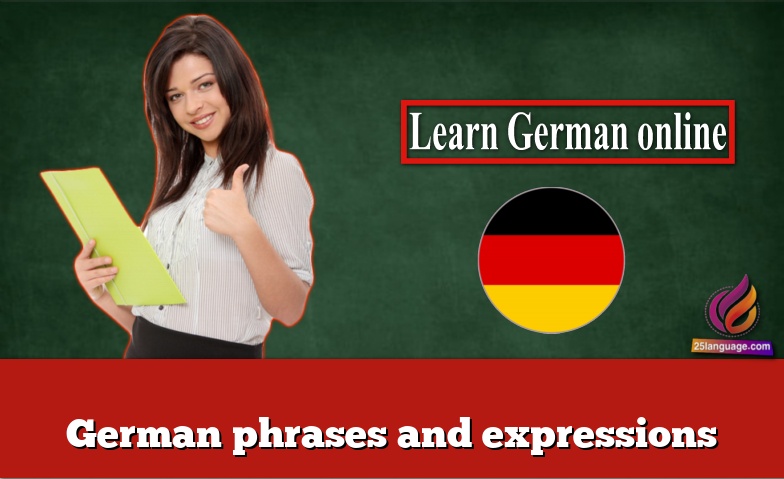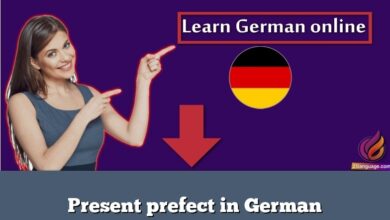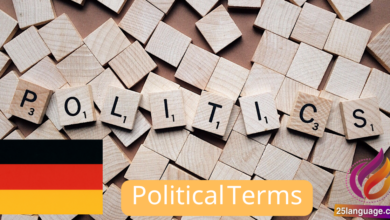German phrases and expressions
German phrases and expressions you can learn today Start

German phrases and expressions
- Hi!: Hi!
- Guten Abend!: Good evening!
- Gute Nacht!: Good night!
- Wie heißt du?: What is your name?
- Willkommen!: Welcome!
- Wie komme ich dorthin?: How do I get there?
- Bis zum nächsten Mal.: See you next time.
- Lass uns ein bisschen Spaß haben!: Let’s have some fun!
- Wiederholen Sie bitte.: Please repeat.
- Tschüss!: Bye!
- Bitte schön.: You’re welcome
- Danke.: Thank you
- Entschuldigung..: Excuse me.
- Wie alt bist du?: How old are you?
- Ich bin … Jahre alt.: I’m… years old
- Keine sorge.: Don’t worry.
- Ich möchte … kaufen.: I would like to buy ….
Basic German phrases you need to know
We have prepared a list of common German expressions that will help you have a basic conversation in German in no time. Let’s dig in!
Guten Morgen. = Good morning.
If you find yourself in Austria it is always polite to say “Hi” every morning because German speakers are really sociable. “Good morning” in German is “Guten Morgen”.
Now enjoy being greeted by a native speaker:
Guten Tag. = Good afternoon.
But what if it’s later in the day and you want to greet someone from Vienna? Well, “Good afternoon” in German is “Guten Tag”.
Now listen to how a German speaker would pronounce it:
Es freut mich, dich kennenzulernen. = I’m pleased to meet you.
Now that you have introduced yourself, a German speaker would respond “Nett, Sie kennenzulernen” which means “I’m pleased to meet you” in German.
Listen to a native German speaker saying that exact sentence to you right now:
Wie geht’s? = How are you?
At this point, it might be polite to ask the person you are having a conversation with “How are you?” in German.
It’s really easy to pronounce.
Gut, danke. Wie geht es Ihnen? = Fine, thanks. And you?
If, on the other hand, a German speaker asks you first how are you doing, this is how you can answer politely. Apply the unspoken rule of politeness everywhere you go and many doors shall joyously open in your path.
Ich möchte ein Bier. = I’d like a beer.
And because you might find yourself in a bar when visiting Berlin you might have to learn how to order a beer in German.
Es tut mir leid. = I’m sorry.
There are times when what you ordered is out of stock, so a bartender might say “Es tut mir leid” which means “I’m sorry” in German.
Bis bald! = See you soon!
This is a good way of saying “See you soon” in German to a co-worker from Switzerland that you are probably going to see the next day.
Tschüss. = Goodbye.
Let’s end with the best way to end a pleasant conversation politely. This is another way of saying “Goodbye” in German
10 useful German phrases for everyday situations

If you started to learn German, make sure to also learn some common everyday phrases that don’t have more than one meaning. Here are ten practical German phrases you can start using right now:
● Können Sie mir helfen? – “Can you help me?”
● Ich feiere meinen Geburtstag. – “I celebrate my birthday.”
● Nein, hungrig bin ich nicht. – “No, I am not hungry.”
● Ich komme aus Rumänien. – “I come from Romania.”
● Hallo, Rezeption. – “Hello, front desk.” Do you want to explore German greetings beyond Hallo?
● Die Rechnung, bitte. – “The bill, please.”
● Prost! – “Cheers!”
● Tut mir leid. – “I am sorry.” Do you want to see other ways to say sorry in German? Then, let’s learn!
● Wo ist der Bahnhof? – “Where is the train station?”
● Danke! – “Thanks!”
● Entschuldigung. – “Excuse me.”
● Einen Moment, bitte. – “One moment, please.”




























